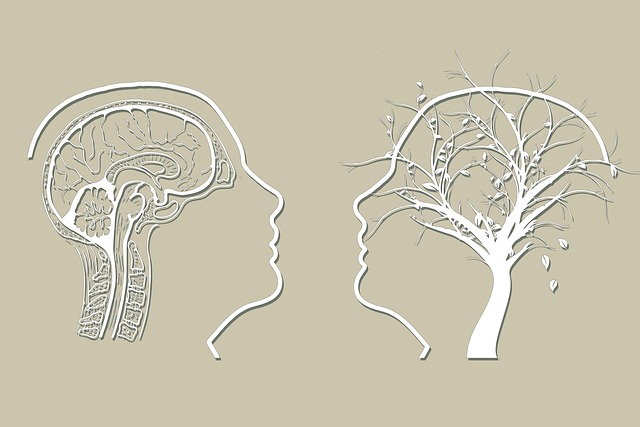Mental wellness is crucial for a child's development, with issues arising from trauma, academic pressure, or social dynamics. Early intervention through online therapy, accessible via live video sessions, offers convenient support for anxiety relief and depression prevention. Effective communication strategies and community outreach break stigmas and ensure all children have access to mental health services. Innovative platforms integrate Cognitive Behavioral Therapy (CBT) and mindfulness interventions with digital games, fostering resilience and self-awareness. Online therapy leverages digital tools to reach underserved communities, empowering children with lifelong skills for enhanced mental wellness.
Mental wellness coaching programs are gaining traction as a vital tool for supporting young children’s emotional well-being. This article delves into the growing importance of mental health awareness among children, focusing on the rise of online therapy and its potential benefits and challenges. We explore effective strategies for designing coaching programs tailored to this demographic, highlighting evidence-based practices that can enhance their effectiveness. Additionally, we address barriers to access and advocate for making quality mental wellness care accessible to all children through innovative solutions like online therapy.
- Understanding Mental Wellness and its Impact on Young Children
- The Rise of Online Therapy for Children: Benefits and Challenges
- Designing Effective Coaching Programs for Mental Health Support
- Incorporating Evidence-Based Practices in Child Coaching
- Overcoming Barriers: Making Quality Care Accessible to All Children
Understanding Mental Wellness and its Impact on Young Children

Mental wellness is a vital aspect of a child’s overall development, shaping their ability to navigate life’s challenges and thrive. Young children, despite their youthful energy, are susceptible to mental health issues that can stem from various factors such as trauma, academic pressures, or social interactions. Early intervention through therapy for young children becomes crucial in fostering resilience and promoting healthy coping mechanisms. Online therapy, for instance, offers a convenient and accessible solution, enabling children to receive professional support from the comfort of their homes.
Effective communication strategies are essential in understanding and addressing these issues. Public awareness campaigns development can play a significant role in educating parents and caregivers about mental wellness, breaking down stigmas, and encouraging early identification of problems. Additionally, community outreach program implementation can bring specialized services to underserved areas, ensuring that all children have access to the support they need.
The Rise of Online Therapy for Children: Benefits and Challenges

The digital age has brought about a significant shift in mental health support, with online therapy for young children gaining traction. This innovative approach offers accessibility and convenience, addressing the growing need for pediatric mental wellness services. Many platforms now provide live video sessions, allowing therapists to connect with kids in their homes, fostering a sense of comfort and familiarity. Online therapy has proven particularly beneficial for children who struggle with anxiety relief or depression prevention, providing them with discrete and confidential support from the safety of their own spaces.
While online therapy for young children brings numerous advantages, such as reduced stigma and increased reach, it also presents challenges. Ensuring effective communication and building a strong therapeutic alliance can be more difficult without in-person interaction. Moreover, the digital nature of these sessions may not suit every child or family dynamic. However, with compassionate cultivation practices integrated into online therapy models, professionals can offer tailored support, addressing specific needs related to anxiety relief, depression prevention, and fostering resilience in young minds.
Designing Effective Coaching Programs for Mental Health Support

Designing effective coaching programs for mental health support requires a tailored approach that caters to diverse needs, especially when focusing on therapy for young children. Online therapy has become an increasingly accessible option, breaking down geographical barriers and making mental health education programs design more inclusive. By incorporating innovative communication strategies, coaches can create safe spaces for youngsters to express their emotions and work through challenges.
Self-care practices are integral components of these programs. Teaching children coping mechanisms and promoting self-awareness helps them develop resilience. The goal is not just to address immediate concerns but also to equip them with lifelong skills that enhance their mental wellness. Through a combination of structured coaching sessions, interactive activities, and supportive resources, these programs can effectively guide young individuals toward better emotional well-being.
Incorporating Evidence-Based Practices in Child Coaching

Incorporating evidence-based practices is a cornerstone of effective mental wellness coaching programs development, especially when tailored for children. Therapy for young children, whether delivered online or in person, benefits from strategies that have proven successful in numerous studies. Cognitive Behavioral Therapy (CBT), for instance, helps kids identify and change negative thought patterns, boosting their emotional resilience. Similarly, Mindfulness-Based interventions teach present-moment awareness, enabling self-regulation of emotions. These practices not only enhance the child’s ability to cope with stress and anxiety but also foster healthy self-care practices.
Online therapy offers a unique opportunity to integrate innovative tools such as digital games and interactive platforms into coaching sessions. This approach, combined with traditional evidence-based methods, can make mental wellness coaching programs more engaging and accessible for young clients. By incorporating techniques that build confidence and promote positive self-image, coaches can empower children to navigate their emotional landscapes with growing maturity and adaptability.
Overcoming Barriers: Making Quality Care Accessible to All Children

Overcoming barriers to access quality mental wellness care for young children is a pressing issue that requires innovative solutions. Many families face challenges in securing appropriate therapy due to geographical constraints, financial limitations, or a lack of awareness about available resources. Online therapy platforms offer a promising avenue to bridge this gap and ensure that every child has the opportunity to thrive. By leveraging digital tools, such as video conferencing, parents can access professional mental wellness coaching programs for their children from the comfort of their homes.
This shift towards online therapy benefits both families and mental health professionals. It expands reach, making specialized services more accessible, especially in underserved communities. Additionally, it promotes flexibility, allowing therapists to cater to diverse schedules while enabling children to receive consistent care without the barriers often associated with traditional in-person therapy. With the right resources, such as a well-designed Mental Wellness Podcast Series Production focused on engaging content for young audiences and practical Self-Awareness Exercises, online platforms can play a pivotal role in Depression Prevention and overall mental wellness development for children.
The development of mental wellness coaching programs is a vital step towards addressing the growing need for accessible and effective support for young children’s mental health. By combining the benefits of online therapy with evidence-based practices, we can create inclusive environments that cater to diverse needs. Overcoming barriers to access ensures that quality care becomes a reality for all children, fostering their overall well-being and resilience. This approach not only empowers kids but also equips them with essential tools to navigate life’s challenges, promoting healthier and happier futures.














